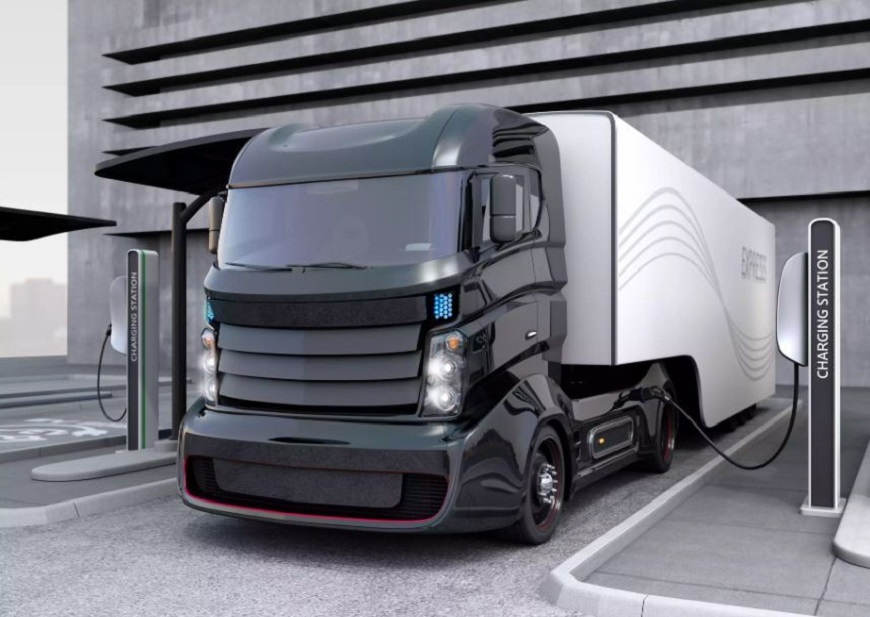06
May
Why are Commercial Vehicle Manufacturers Switching to Hydrogen Fuel?
Over the past few years, there has been a notable shift in the automotive industry, with commercial vehicle manufacturers increasingly turning their attention towards hydrogen fuel. But what's driving this shift, and why are businesses opting for this alternative energy source? In this article, you will find the reasons behind the surge in commercial vehicle manufacturers switching to hydrogen fuel.
One of the main reasons behind this transition is the increasing focus on sustainability. As companies strive to reduce their carbon footprint and meet stricter emissions standards, hydrogen fuel presents a cleaner and more environmentally friendly option. Unlike traditional fossil fuels, hydrogen produces zero greenhouse gas emissions when burned, making it an attractive choice for companies looking to align with sustainability goals.
In addition, hydrogen offers several other advantages over conventional fuels. It boasts a higher energy density, allowing vehicles to travel longer distances without refueling. Hydrogen fuel cells also provide quicker refueling times, reducing downtime and increasing productivity for commercial fleets.
In this article, we explore the benefits and challenges associated with hydrogen fuel for commercial vehicles and how this industry-wide transition is shaping the future of transportation.
Advantages of hydrogen fuel for commercial vehicles
Hydrogen fuel offers numerous advantages for commercial vehicles, making it an appealing option for manufacturers and fleet operators.
Environmental benefits of hydrogen fuel
One of the primary reasons commercial vehicle manufacturers are transitioning to hydrogen fuel is its environmental benefits. Hydrogen fuels produce zero emissions when used to power vehicles. Unlike traditional fossil fuels, hydrogen fuel commercial vehicles do not release harmful pollutants into the atmosphere. Therefore, hydrogen fuel makes an attractive option for commercial vehicle manufacturers looking to reduce their carbon footprint.
Cost savings and efficiency with hydrogen fuel
Apart from the environmental benefits, hydrogen fuel offers significant cost savings and efficiency improvements for commercial vehicles.
One of the key advantages is the higher energy density of hydrogen fuel, which means it can travel longer distances without frequent refueling, increasing productivity and reducing downtime for commercial fleets. With longer ranges, vehicles powered by hydrogen fuel can cover more ground without interruptions, making them more efficient and cost-effective.
Furthermore, hydrogen fuel cells offer quick refueling times compared to conventional batteries used in electric vehicles. It allows commercial fleets to maximize operational efficiency.
Performance and Reliability with hydrogen fuel
Hydrogen-powered vehicles offer comparable performance and reliability to their fossil fuel counterparts, making them well-suited for commercial applications. Whether hauling heavy loads or navigating challenging terrain, hydrogen-powered commercial vehicles deliver power and durability based on business needs. With advancements in fuel cell technology, manufacturers are continually improving the performance and efficiency of hydrogen-powered commercial vehicles.
Challenges and limitations of hydrogen fuel for commercial vehicles
While hydrogen fuel offers numerous advantages, there are also challenges and limitations which need to be considered.
One of the main challenges is the limited infrastructure for hydrogen refueling stations. Unlike traditional fuel stations, hydrogen refueling stations are still relatively scarce. The limited infrastructure can pose logistical challenges for commercial vehicle manufacturers and fleet operators, especially when planning long-haul routes or operating in areas with limited hydrogen infrastructure.
Another limitation is the high initial cost of hydrogen fuel cell vehicles. Currently, the production and deployment of hydrogen fuel cell vehicles are more expensive when compared to traditional internal combustion engine vehicles or even battery EVs. However, as technology continues growing, the cost is expected to decrease over time.
Despite these challenges, commercial vehicle manufacturers are actively working towards addressing them and investing in the development of hydrogen refueling infrastructure to support the growing demand for hydrogen fuel-powered vehicles.
Conclusion: The future of hydrogen fuel for commercial vehicles
Commercial vehicle manufacturers are driving the shift towards hydrogen fuel due to their increasing focus on sustainability, cost savings, and efficiency improvements. With its environmental benefits, higher energy density, and quick refueling times, hydrogen fuel presents a compelling alternative to traditional fossil fuels.
While challenges and limitations exist, ongoing developments in hydrogen fuel technology and government support are paving the way for a future where hydrogen fuel-powered commercial vehicles become the norm. As the industry continues to evolve, commercial vehicle manufacturers must carefully consider the advantages and challenges associated with transitioning to hydrogen fuel and make informed decisions to shape a greener and more efficient future of transportation.


Comments